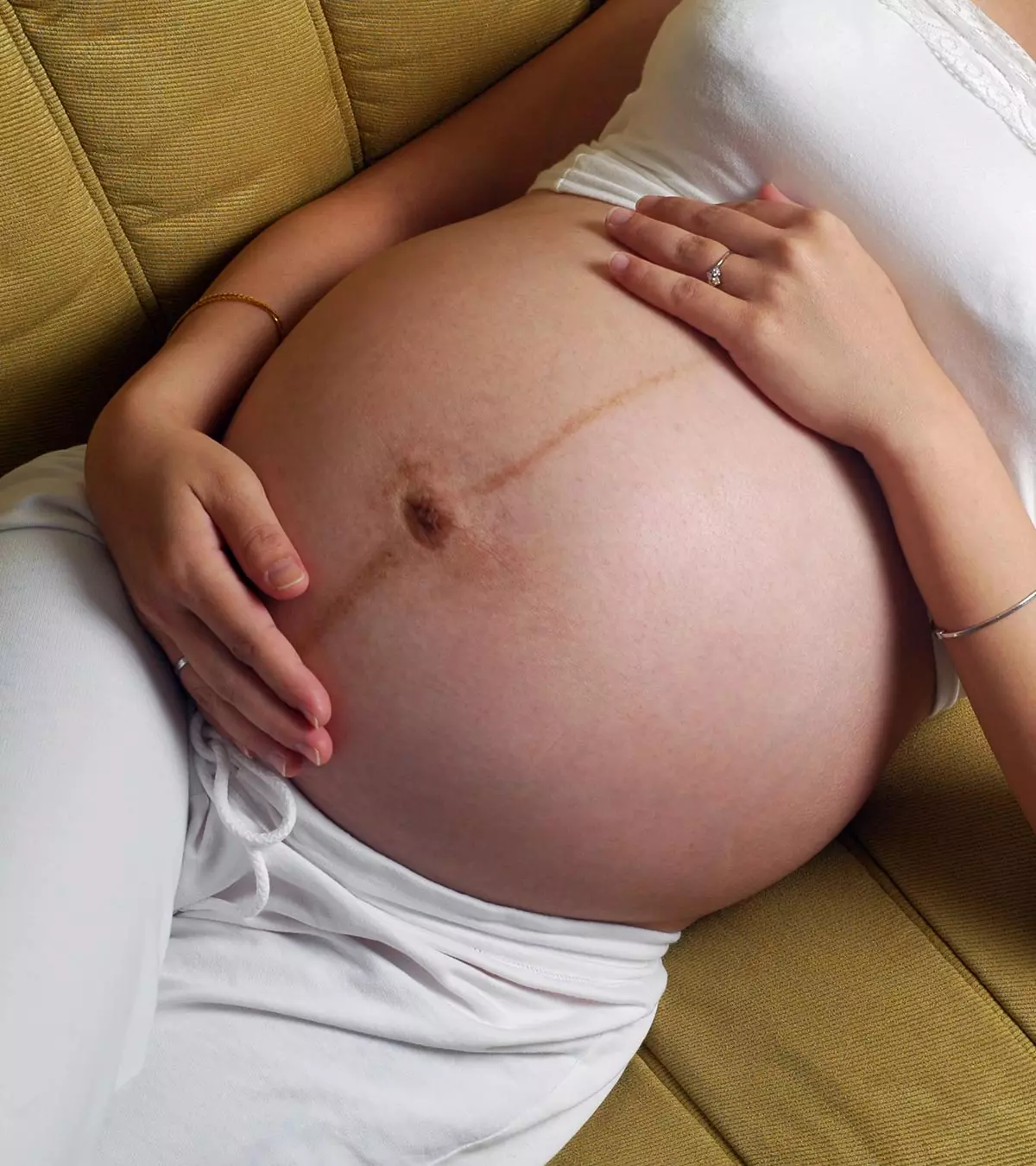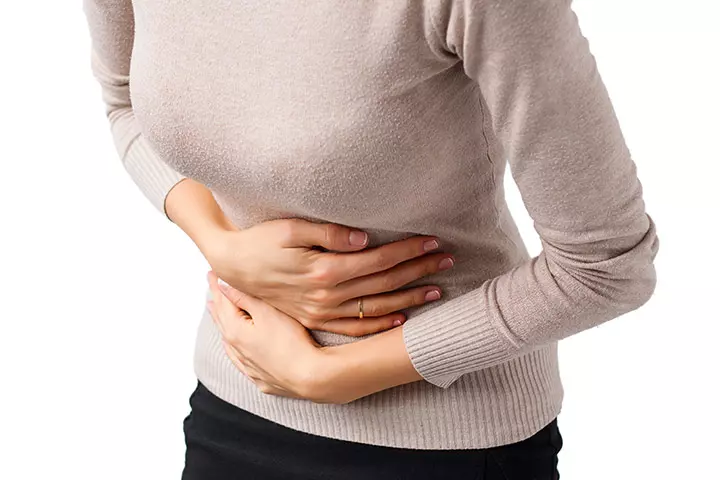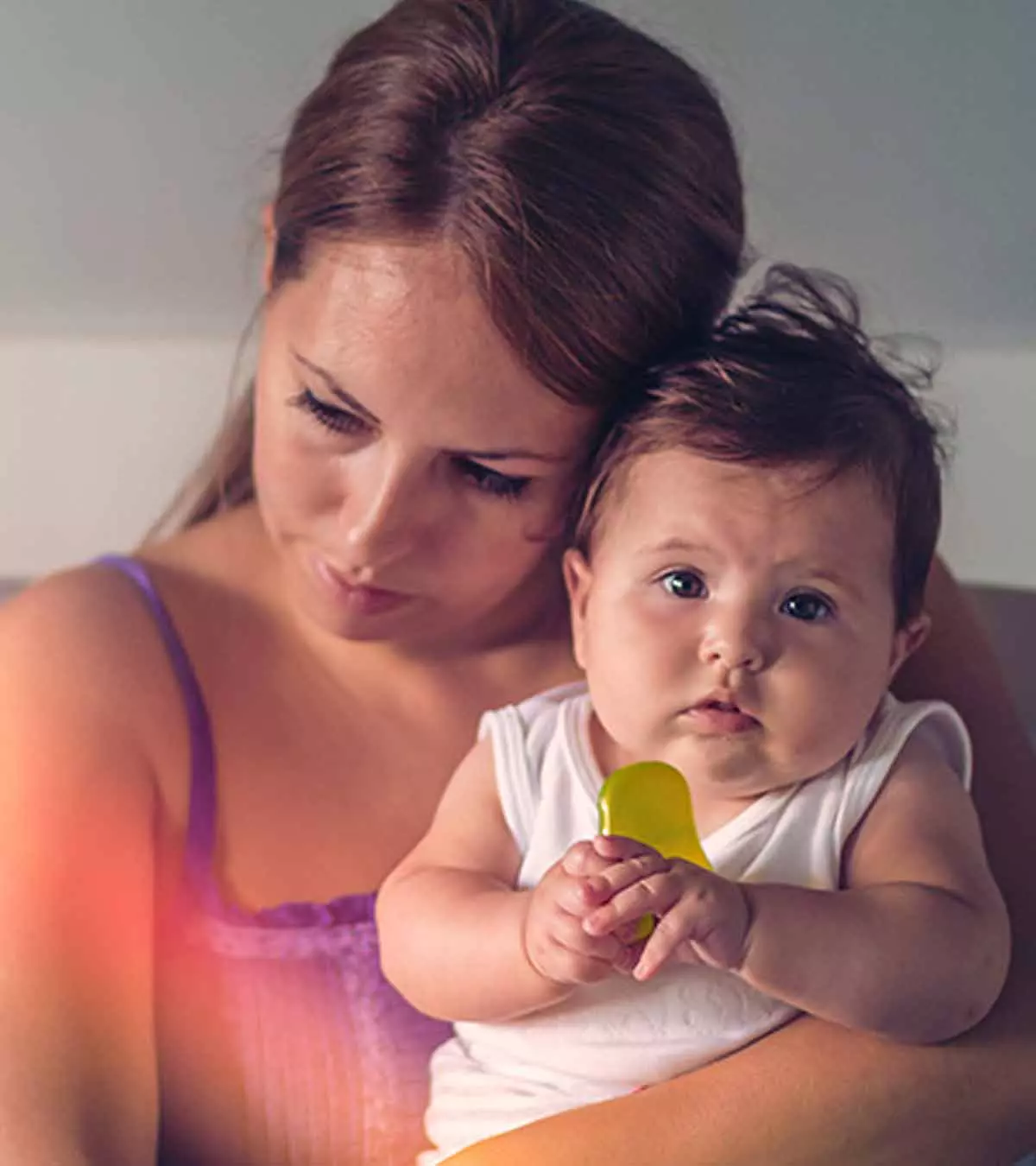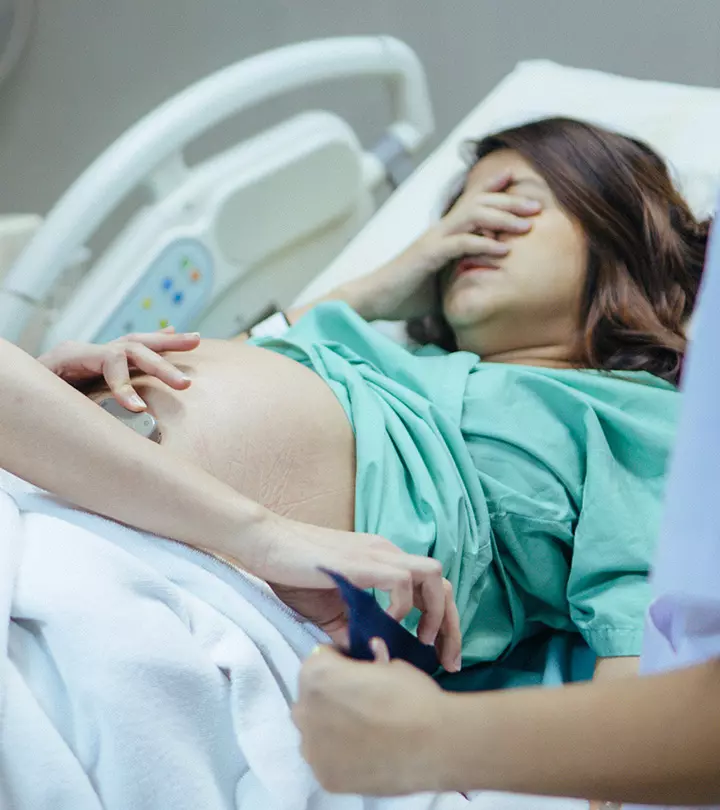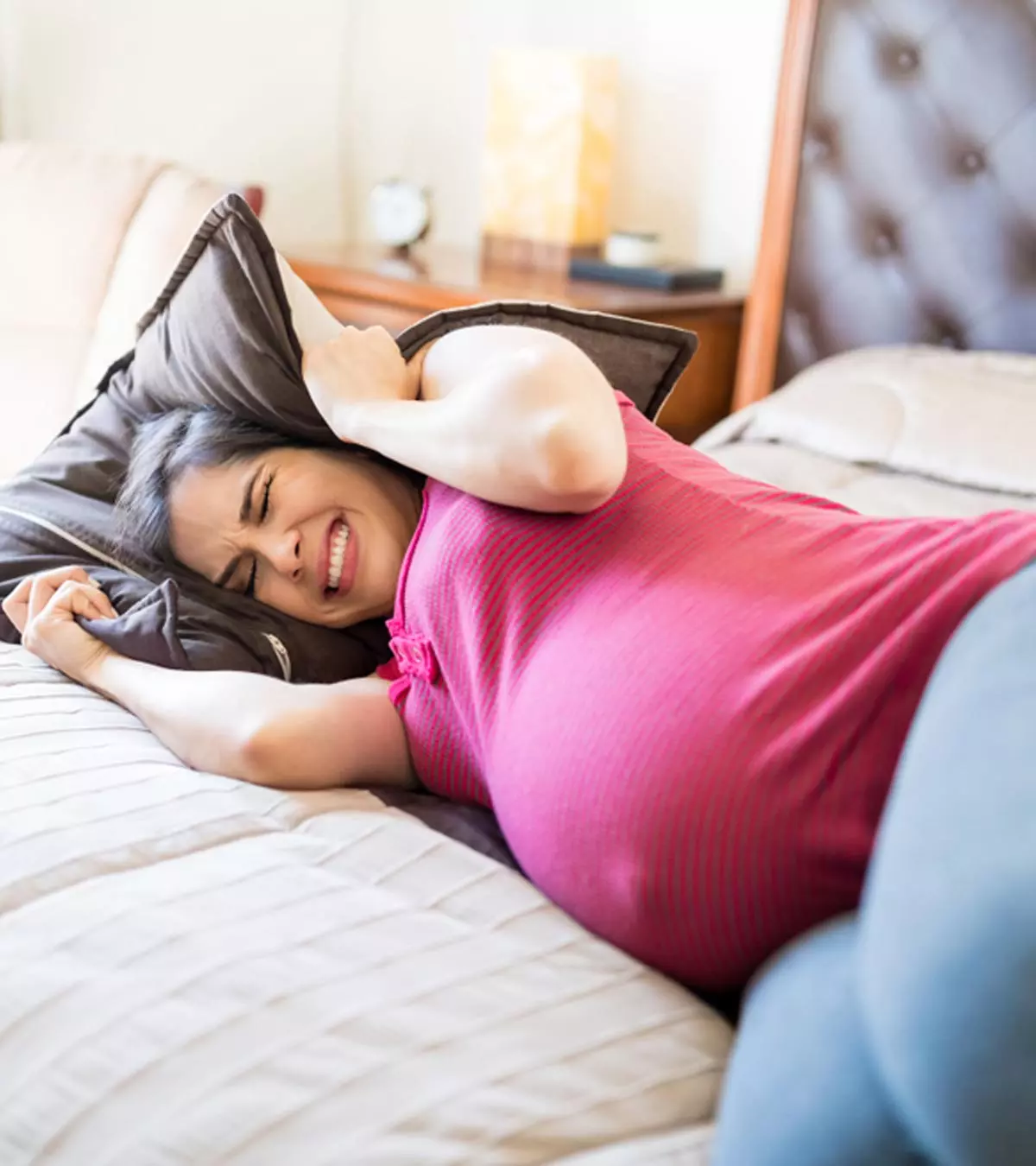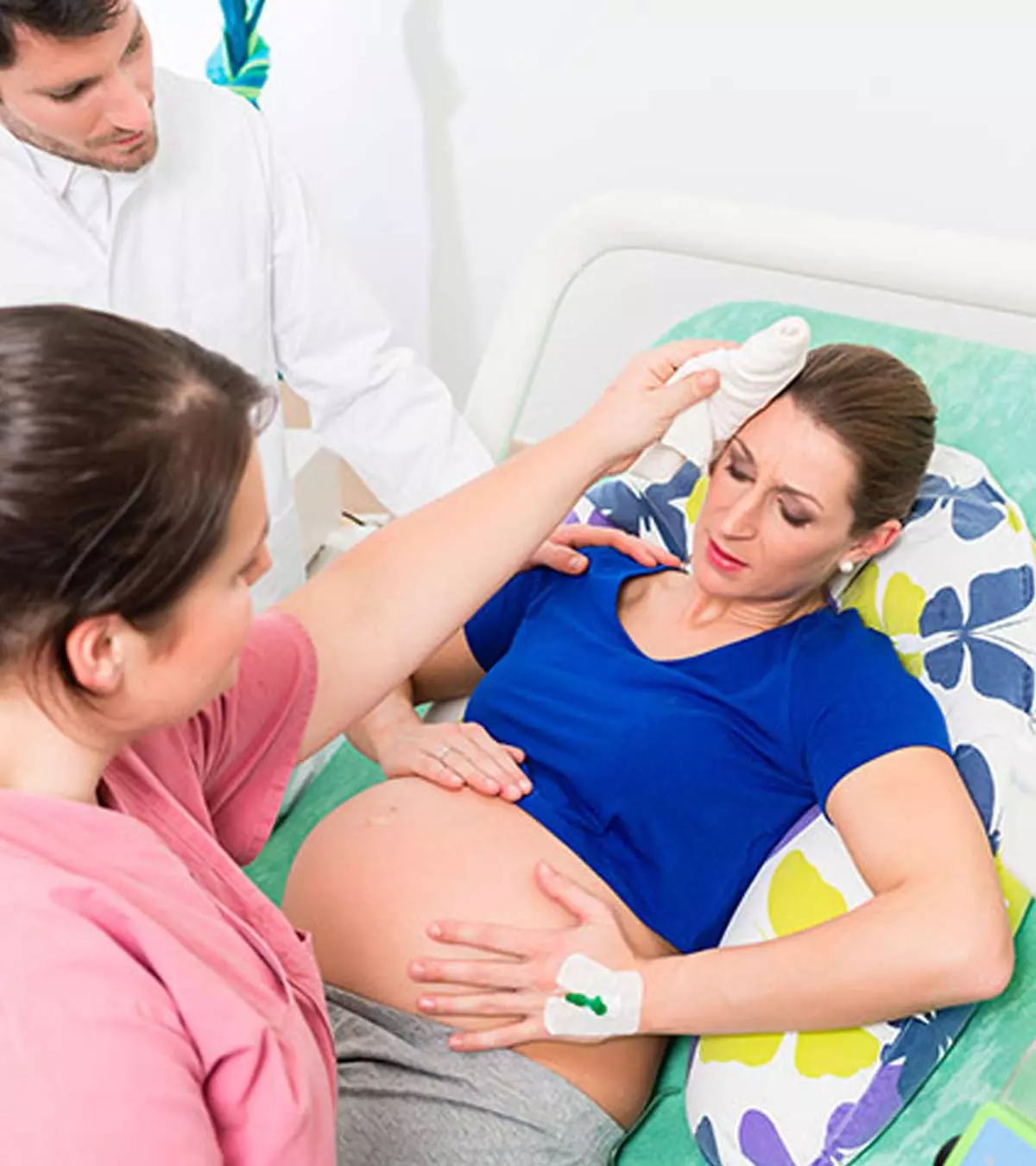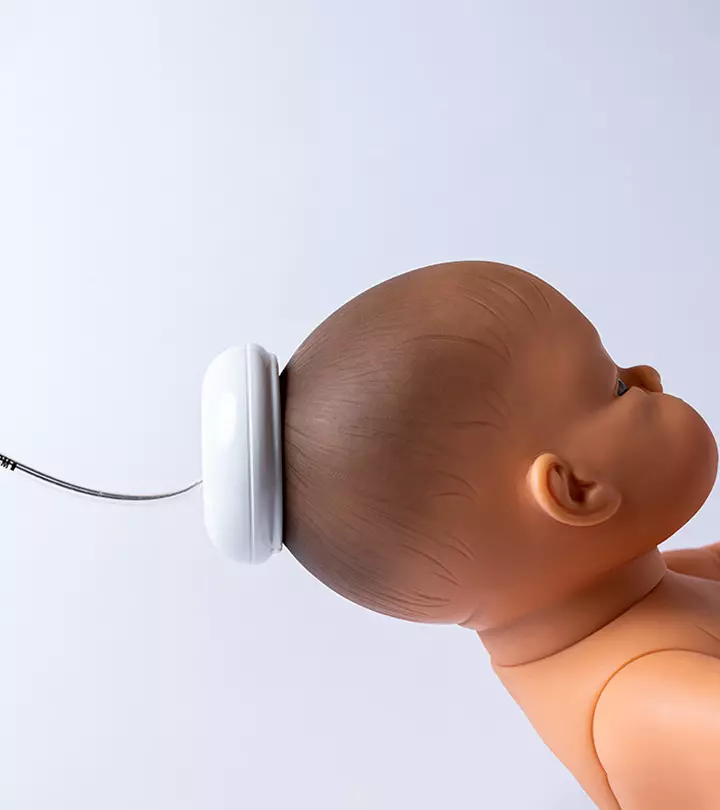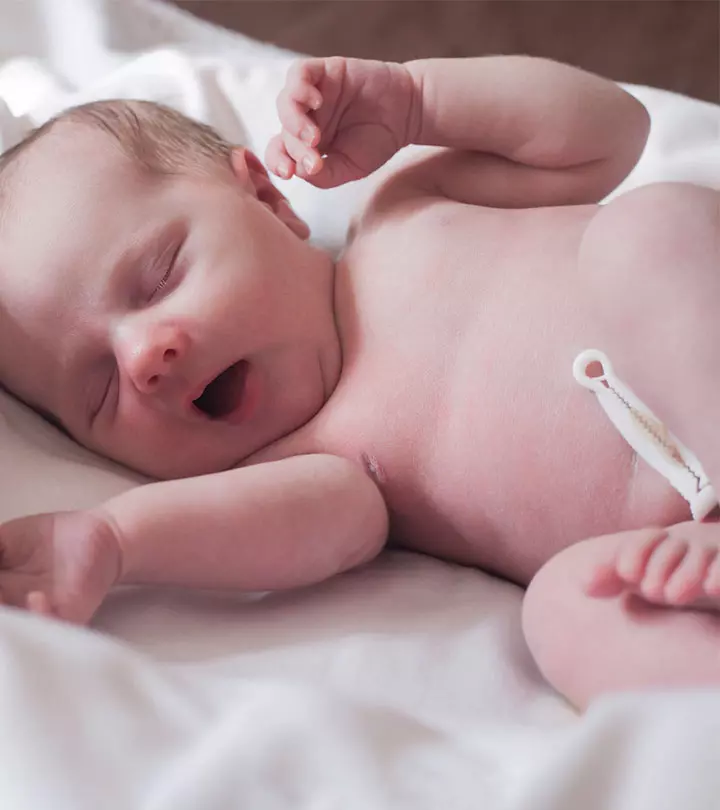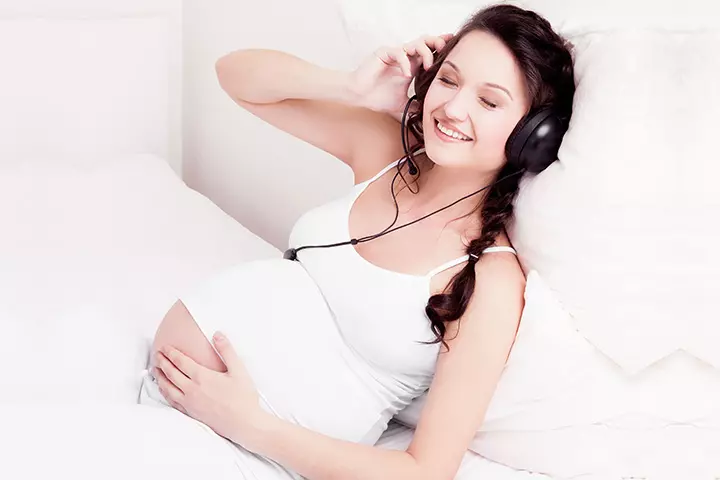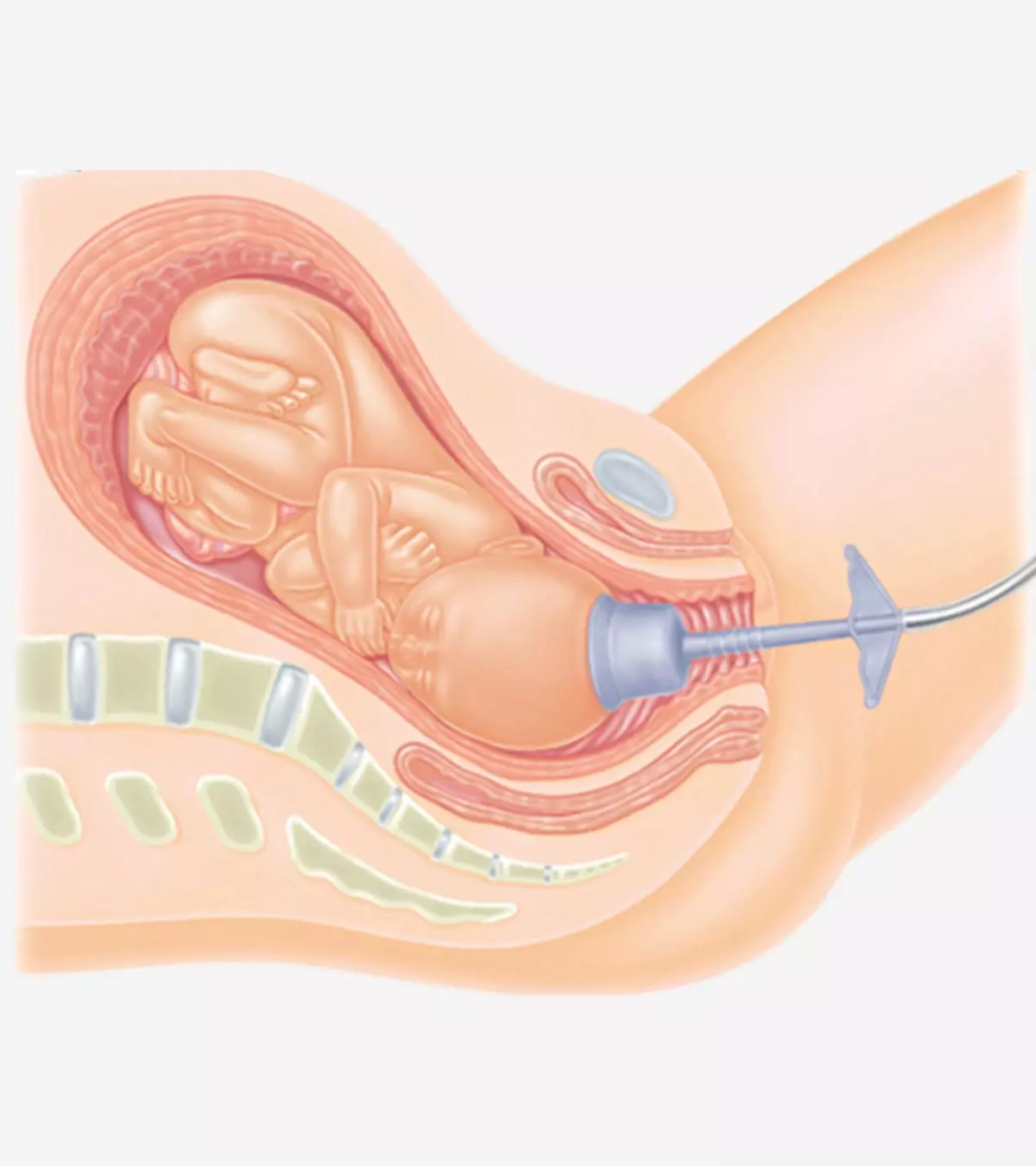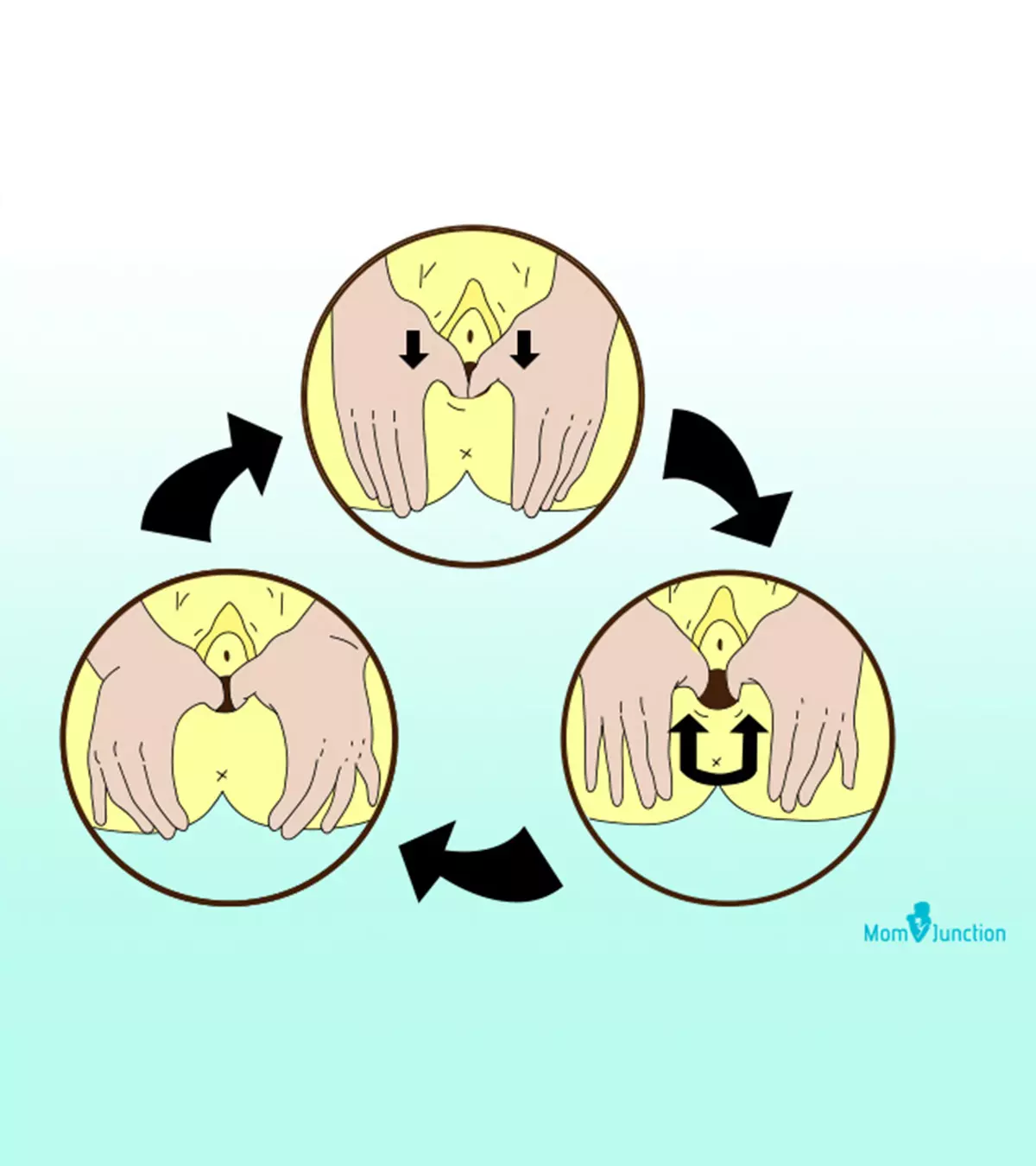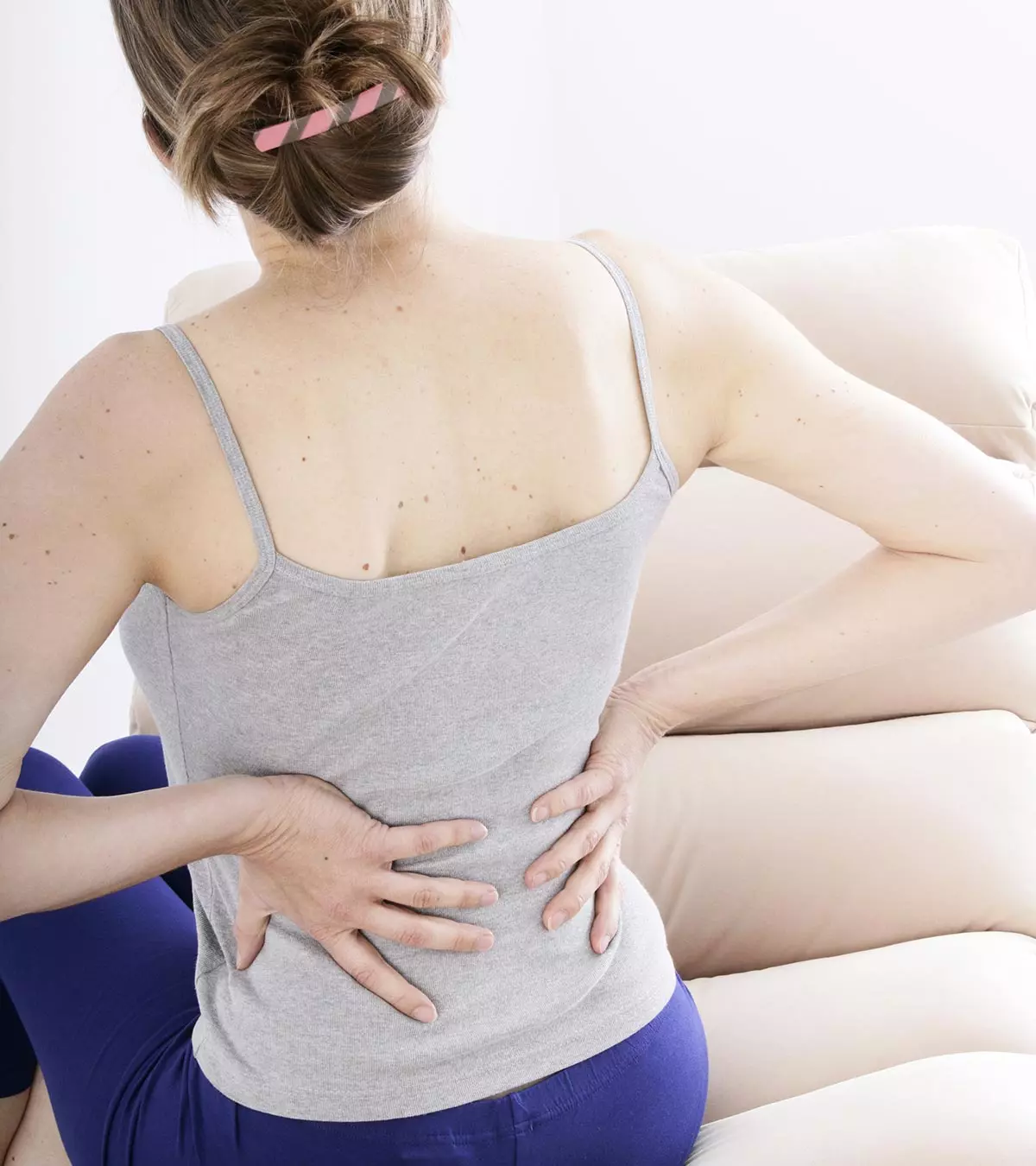
Image: Shutterstock
It is not unusual for women to experience back pain all through their pregnancy or during delivery. Some women may also experience lingering back pain after pregnancy due to various reasons. Back pain after childbirth can cause problems with day-to-day activities and child care. Knowing its causes and taking effective relief strategies can greatly improve your comfort and overall well-being during this critical recovery period. Continue reading this post as we tell you more about the causes and tips on getting relief from postpartum back pain.
Key Pointers
- Hormones and physical stress during pregnancy and delivery can result in back pain.
- Postpartum back pain can also be caused by factors such as weak abdominal muscles, being overweight, prior back pain, and incorrect posture.
- Generally, postpartum back pain resolves within 6-12 months.
- Proper exercise, posture, and rest can alleviate back pain.
- Back pain can be prevented by avoiding heavy lifting and utilizing proper techniques while caring for the baby.
What Are The Reasons For Postpartum Back Pain?
Postpartum back pain may be a result of various physical changes that your body undergoes during pregnancy, and the tremendous physical stress you experience during delivery.
Here are the reasons that may cause backache post-delivery.
- The body releases progesterone and relaxin hormones during pregnancy to loosen the ligaments and joints of the pelvic bone, to help the baby come out with ease (1). The weak ligaments and muscles might lead to back pain. The levels of these hormones are likely to stay up for a few months after delivery (2).
- A wrong posture, especially while breastfeeding, could strain the muscles, causing stiffness, soreness, and backache.

Image: Shutterstock
- As the uterus expands during pregnancy, it may weaken the abdominal muscles and pull the lower spine forward, putting pressure on the lower back muscles and causing muscle spasms.
- Being overweight might put extra pressure on your back.
- The delivery process might also stress the lower back, which may take time to recover.
- Bending frequently for lifting your baby or for something else may result in back pain.
- If you have had back pain before and during pregnancy, it is likely to continue postpartum as well.
- Physically taxing work might also lead to back pain.
Some common differential diagnoses that may be detected as lower back pain could be lumbar stenosis, sciatica or osteitis pubis, and spondylolisthesis (3).
It is not encouraging to know that your pregnancy pains may persist even after your delivery. But you might find solace in knowing the timeframe for them to subside.
How Long Does Postpartum Back Pain Last?
Typically, back pain subsides within six months after delivery (3). By then, the level of relaxin hormone may settle down, and the body could get back to normalcy.
As the muscles get toned, joints are tightened, and your body regains strength, the back pain could wane. However, in some cases, the pain persists for about 12 months owing to heavy physical activities by the new mother (4).
But it doesn’t mean that you have to reel under the pain for so long. You may take some measures to get relief.
19 Ways To Get Relief From Back Pain Post Delivery
Back pain after childbirth ranges from mild to severe, and it differs from person to person. The pain might subside gradually as your body gets back to normal. Meanwhile, you may use these simple tips to relieve the back pain post-pregnancy:
- Make efforts to get back to your normal weight after a month or so post-delivery. Follow a balanced diet for optimum weight management.
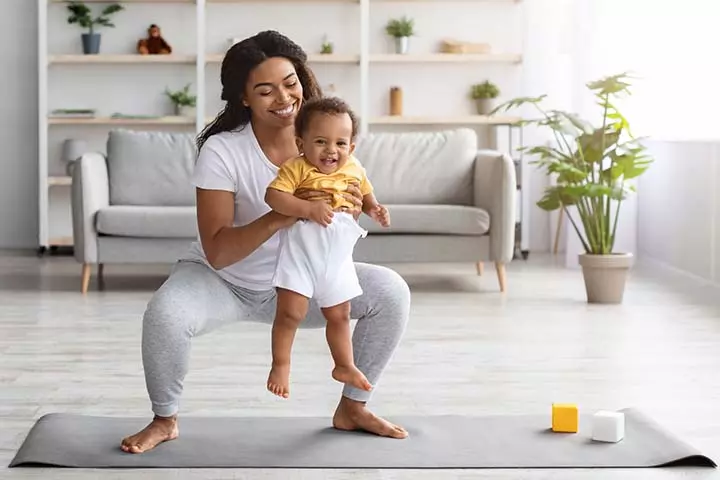
Image: IStock
- Start exercising or do yoga after childbirth, as it helps in improving the health of the strained muscles and ligaments (5). Also, it might help increase flexibility and endurance. Walking may be a safe exercise to start with if you have had a C-section. Later, you could try swimming as it may help in strengthening your muscles.
- You may also do some pelvic tilts (6). Here is how you can do them:
- Lie on your back. Bend the knees and keep your feet flat on the floor.
- Breathe in and let your belly expand.
- Breathe out, keeping your hips on the floor and bring your tailbone towards the belly button. Tighten your buttocks and release.
- Repeat it 8-10 times.
Note: If you have had a C-section, then you may have to wait for at least six weeks before you start with this exercise.
- Take rest as much as possible, as strenuous physical activities may aggravate your pain.
- Do not lift heavy objects after delivery, as it could put pressure on your muscles and joints.
- Maintain a proper posture while sitting. Avoid leaning towards your baby while breastfeeding. Instead, sit with an upright back. If you have shoulder or upper back pain during breastfeeding, then you may lie on your side to feed your baby comfortably.
 Quick tip
Quick tip- Choose a comfortable chair for sitting, with a lot of pillows to support your back. Also, use a footstool to keep your feet slightly raised from the floor, to mitigate the lower back pain.
- Avoid wearing high-heeled footwear for a few months after delivery.
- Avoid carrying the baby on one hip for a long time because it might put constant pressure on the back muscles. Use a front pack to carry your baby.
- Avoid stretching your arms while picking your baby. Instead, get closer to your baby and then lift.

Image: Shutterstock
- Sleep in a comfortable position and use pillows for support.
- While placing your child in the back seat of the car, do not bend or stretch your arms. Instead, kneel or sit on the back seat and place your baby in the car seat.
- To pick up anything from the floor, bend at your knees rather than bending at the waist to minimize the strain on your back.
- Warm water baths may help in relaxing strained muscles and muscle pains. Avoid bathing in cold water soon after delivery as it may strain your muscles.
- Get an oil massage done by a professional masseuse occasionally. Massage therapy may help improve blood circulation and offer relief.
- Use a hot water bag or a cold pack to alleviate the pain.
- For mild to moderate back pain, a pain relief ointment might work well. Gently apply it on the area to get instant relief.
- Practicing relaxation techniques, such as progressive muscle relaxation therapy (7) and breathing exercises, may help ease the discomfort of back pain.
- If you’re experiencing chronic pain or discomfort, you might consider exploring options like physical therapy, chiropractic therapy, or acupuncture to see if they can offer relief.
 Point to consider
Point to consider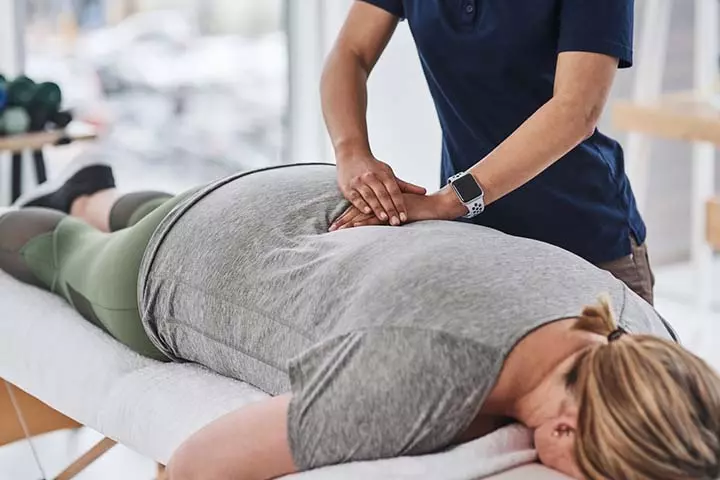
Image: IStock
If the pain does not subside with the above steps, then your doctor may prescribe medication for short-term relief.
When To Call A Doctor?

Image: Shutterstock
Usually, back pain resolves on its own after a few months post-delivery. But you must call a doctor if:
- The pain is severe and gets worse gradually
- It is accompanied by a fever
- Pain is caused by trauma, such as a fall
- There is numbness in one or both the legs
- You suddenly feel uncoordinated
- If the back pain persists even after six months
It might not be easy to live with the pain when you already have a lot to take care of. Your newborn and their well-being will be of utmost priority to you, but you need to take time to focus on yourself and your health too. Your doctor may diagnose your pain or ache on the basis of medical history to rule out a herniated disc and prescribe appropriate anti-inflammatory and analgesic medicines to relieve the pain (6).
Next, we answer a few commonly asked questions about postpartum back pain.
Frequently Asked Questions
1. Does epidural cause back pain after delivery?
A study carried out to find the correlation between epidural/spinal anesthesia (administered during delivery) and postpartum back pain found that epidurals do not lead to back pain post pregnancy (8). However, there is an increased risk of lower back pain only on the first day after delivery (9).
2. Why do you feel more pain at night than during the day?
Straining your lower back muscles during the daytime with activities such as bending constantly, lifting heavy objects, or having a bad posture might intensify a backache at night. Moreover, these activities could cause the joints to swell and exasperate. Due to this, the pain could be more during the night.
3. Is back pain common after a C-section?
Back pain is likely to develop whether you’ve had a C-section or vaginal delivery. As discussed above, you may experience back pain either due to hormonal changes, postural changes, weight fluctuations, or from the strain your body goes through during delivery and may not be specifically due to cesarean delivery.
4. Can wearing a support belt help with back pain after pregnancy?
Wearing a support belt may relieve back pain in pregnant women with pelvic girdle pain. A study assessed its impact on pain intensity, functional status, and quality of life and found significant improvements in pain intensity and functional status (11).
5. Can any vitamins or supplements help with back pain after pregnancy?
A blend of vitamins B1, B6, and B12 may help reduce the intensity of post-pregnancy back pain. However, you must have supplements only after a doctor consultation (12).
Back pain after pregnancy can be an uncomfortable experience and may at times interfere with the joys and happiness of motherhood. So, if you are suffering from back pain after pregnancy, do not worry, as it is common and can be managed with some helpful exercises. Although natural changes in the body are mainly the reason behind its occurrences, be careful not to take up any heavy work to trigger the pain. Remember to get medical advice before beginning any activity to ensure its safety and seek medical help if the pain becomes severe.
Infographic: Ways To Get Relief From Back Pain Post Delivery
Back pain post-childbirth can be caused by various factors such as additional weight gain, the delivery process, or posture. While it may be common and an unalarming condition, it can interfere with your motherhood responsibilities and joy. So, scroll through this infographic to learn how to relieve yourself from the backaches. Illustration: Momjunction Design Team
Even after pregnancy, the back pain lingers for postpartum moms. Learn the best exercises to help relieve back pain and get tips on how to stay comfortable and keep your back healthy.
References
1. Back Pain in Pregnancy; University of Rochester Medical Center
2. Post Partum and Beyond: Managing Back Pain in Women; Physiology, Postpartum Changes; NCBI
3. Melissa Corso et al.; Postpartum Low Back Pain: It is not always What You Think; Obstetrics and Gynaecology Cases – Reviews (2016)
4. Ostgaard HC and Andersson GB; Postpartum low-back pain; Spine (Phila Pa 1976) (1992)
5. R. J. Bennett; Exercise for postnatal low back pain and pelvic pain; Journal of the Association of Chartered Physiotherapists in Women’s Health, Autumn (2014)
6. Back Pain During Pregnancy; Cedars Sinai; cedars sinai
7. Akmeşe ZB and Oran NT; Effects of Progressive Muscle Relaxation Exercises Accompanied by Music on Low Back Pain and Quality of Life During Pregnancy; J Midwifery Women)s Health. (2014)
8. Shemila Abbasi et al.; Prevalence of low back pain experienced after delivery with and without epidural analgesia: A non-randomised prospective direct and telephonic survey; Indian J Anaesth. (2014)
9. Macarthur A et al.; Epidural anaesthesia and low back pain after delivery: a prospective cohort study; BMJ. (1995)
10. Dealing With Pregnancy-Related Back Pain? These Tips Will Help; NewYork-Presbyterian Hospital
11. Comparison between the effect of lumbopelvic belt and home based pelvic stabilizing exercise on pregnant women with pelvic girdle pain; a randomized controlled trial; NCBI
12. Vitamin B6 – Health Information Library; PeaceHealth
Community Experiences
Join the conversation and become a part of our nurturing community! Share your stories, experiences, and insights to connect with fellow parents.
Read full bio of Dr. Stuart J. Fischbein
Read full bio of Sakshi Mishra
Read full bio of Rebecca Malachi
Read full bio of Dr. Joyani Das








